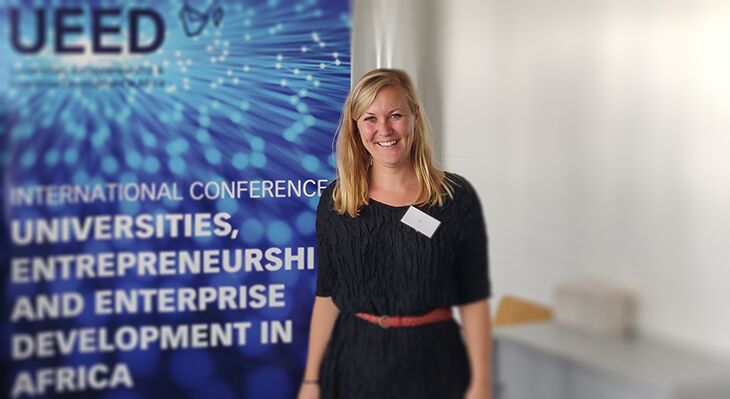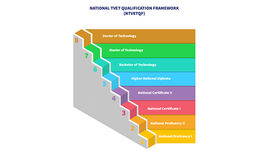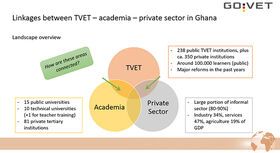Academic research and practice in Ghanaian vocational education and training
11.10.2022
Academic researchers and practitioners from the fields of academic and tertiary vocational education and training came together at the UEED Africa Conference, an annual event which is dedicated to economic issues relating to cooperation with African countries. GOVET reported on its bilateral cooperation activities in Ghana

On 8 and 9 September, the Bonn-Rhein-Sieg University of Applied Sciences in St. Augustin took centre stage with regard to the issue of cooperation with African countries. Around 100 experts from the fields of academic research, practice and business convened for the annual “Universities, Entrepreneurship and Enterprise Development in Africa” (UEED Africa) Conference in order to debate the interfaces between these respective areas and to network on the latest study findings.

Julia Olesen, a Project Head at GOVET, used her presentation to highlight the interfaces between vocational education and training and academic education and between VET and the private sector economy in Ghana. It is striking that many one-off initiatives and projects are being conducted in both segments. Within the context of “TVET – academic education and training”, for example, the National Qualifications Framework (NTVETQF) for vocational education and training has been structured in a way which allows pre-tertiary and tertiary, or higher VET, to build upon each other cumulatively. No statistical information is as yet available as to how many of those completing TVET actually pursue this pathway.

Connecting points between TVET and the private sector are also frequent in Ghana. Many German companies are becoming involved by launching their own training programmes, particularly in the area of continuing training. Nevertheless, collaboration between VET institutions and companies is not yet sufficiently established. Although a number of Sector Skills Bodies have been created with a view to incorporating the companies’ perspective when new curricula are developed, no practical company-based placements have, for example, been universally introduced.
Reinforcement of cooperation with the academic sector and with the private sector economy would be beneficial for VET. During the conference itself, many participants from the field of applied academic research displayed an interest in the Ghanaian vocational education and training system and in the elements which link academia and business.
The papers and presentations given at the conference will subsequently be published in collected form. They deal with the interplay between various educational pathways, academic research, entrepreneurship and the economy in Africa generally.